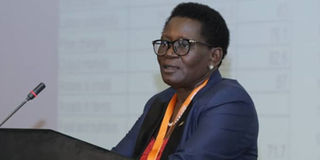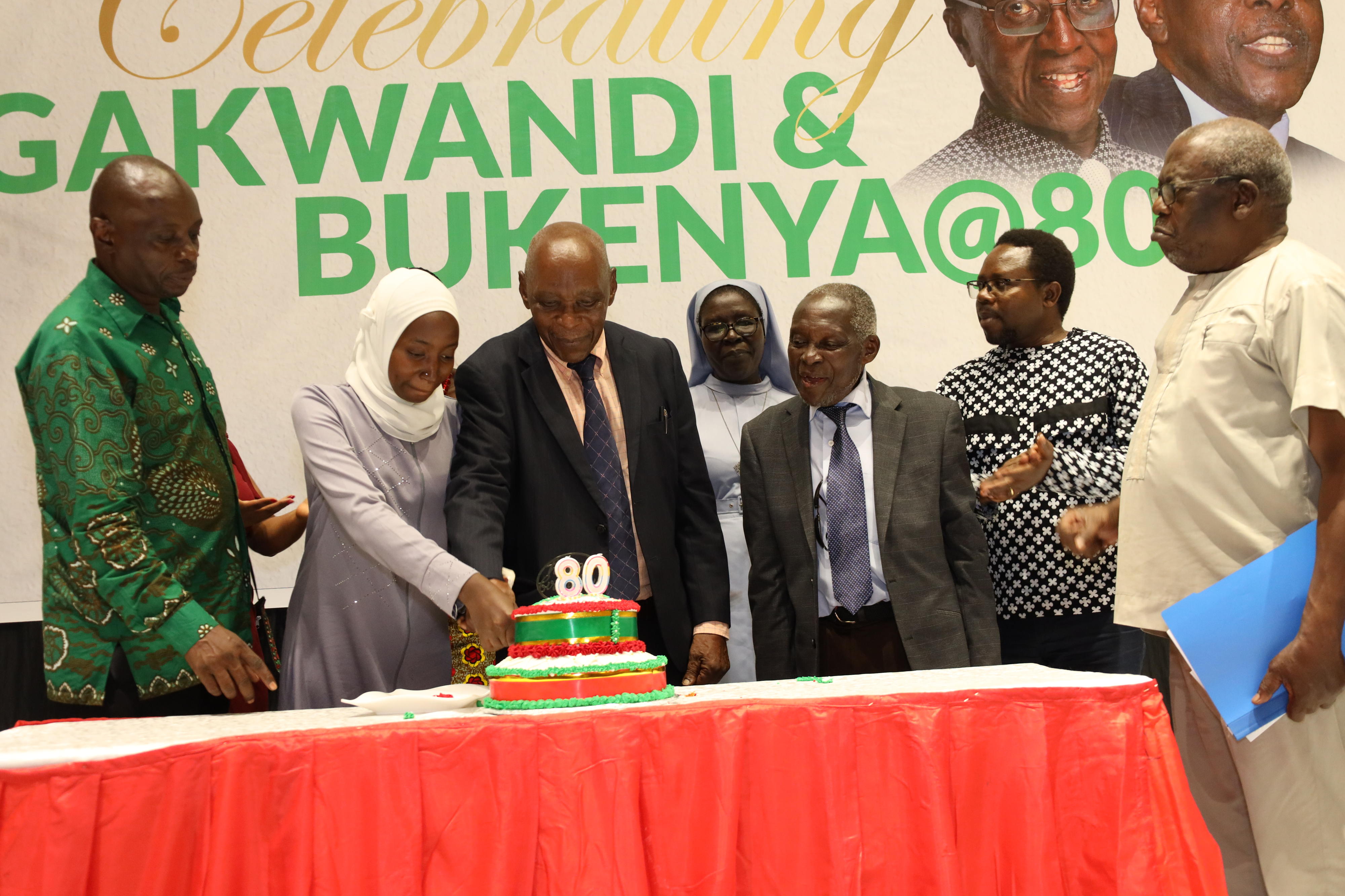Helping farmers to turn to digital solutions

Dr Roselline Nyamutale, SAA country director, speaking at the conference at Commonwealth Resort in Munyonyo. Photo / Godfrey Lugaaju
What you need to know:
- In agriculture, digitalisation is a game-changer in boosting productivity, profitability, and resilience to climate change.
Technology, as in other sectors, is critical to affecting change and driving development.
It is bringing countries closer together, reducing trade barriers, and offering a window of opportunities.
In agriculture, digitalisation is a game-changer in boosting productivity, profitability, and resilience to climate change.
Hindrance
However, low Internet penetration, high cost of Internet, lack of access to smartphones, and illiteracy have been identified as some of the hindrances to achieving digital agricultural transformation in many African countries.
Speaking at the sidelines of the just concluded 5th Africa –Wide Agricultural Extension Week in Kampala, Dr Mel Oluoch, the regional director of Sasakawa Africa Association, said Information and Communications Technology (ICT) is the new initiative that needs to be embraced to transform agriculture.
ICT in agriculture
He, however, said efforts to have farmers and other stakeholders embrace ICT in agriculture have been hindered by lack of smartphones, digital illiteracy, and low internet penetration.
“Farmers are experiencing many challenges when it comes to digital agricultural transformation. Some have challenges when using and accessing digital services, others do not know where to access the information that they need to allow them access services online, while others cannot afford smart gadgets,” Dr Oluoch said.
Coming out of the pandemic proved a big challenge in ensuring that farmers have access to extension services. An e-extension platform that will cover a number of countries in Africa to allow farmers access to inputs, access to output market, access to information, access to financial services, and access to many other areas whether the country in lockdown or not has been developed. “We will continue to use the leverage and power of ICT technologies to continue giving farmers access to these services that are needed,” he said.
Daniel Ninsiima, the Managing Director of m-Omulimisa, an agriculture technology company that provides smallholder farmers with real-time farming information and solutions written in local languages, said farmers can use their smartphones to ask questions in languages that they understand, and receive easy to understand feedback from extension officers.
He said registered farmers also receive location-based information of weather, markets, and best farming practice regularly from extension officers.
“We designed programmes in local languages to bridge the knowledge gap. This enables farmers to also share feedback about agricultural inputs,” he said.
Promotion
To fight ICT illiteracy in farmers, Dr Oluoch said SAA is training and empowering community-based facilitators, extension agents, and other progressive farmers who later train other farmers.
“We help them to develop content in partnership with different players, we have established pilot e-learning centres in some universities in Africa. We train extension agents and other school graduates to be able to use all these digital resources and in return train farmers to know how to access the e-learning resources,” he said.
Dr Roselline Nyamutale, SAA country director, said they build the capacity of extension agents, community association traders with village agents, and community-based facilitators and farmer leaders on how to use ICT in agriculture.
“We train them as trainers of trainees and they pass the skills to farmers. We have provided smartphones to the extension workers and community-based facilitators but on cost recovery. They use the smartphones and pay within a given period,” she said.
Dr Angela Namenya from MAAIF says the ministry has embraced digitalisation in their frameworks with a number of platforms that offer services to farmers. She says the ministry also uses traditional broadcasting channels such as radio to spread knowledge.
“We have platforms like the National Food and Agricultural Statistics system, electronic knowledge system, EGRM for obtaining farmers’ feedback and E-voucher for streamlining off delivery of farming services among others,” she said. The one week conference ran under the theme. ‘Effective Agricultural Extension Systems for Sustainable Agriprenuership’
Key facts
Speaking at the sidelines of the just concluded 5th Africa –Wide Agricultural Extension Week in Kampala, Dr Mel Oluoch, the regional director of Sasakawa Africa Association, said Information and Communications Technology (ICT) is the new initiative that needs to be embraced to transform agriculture.




